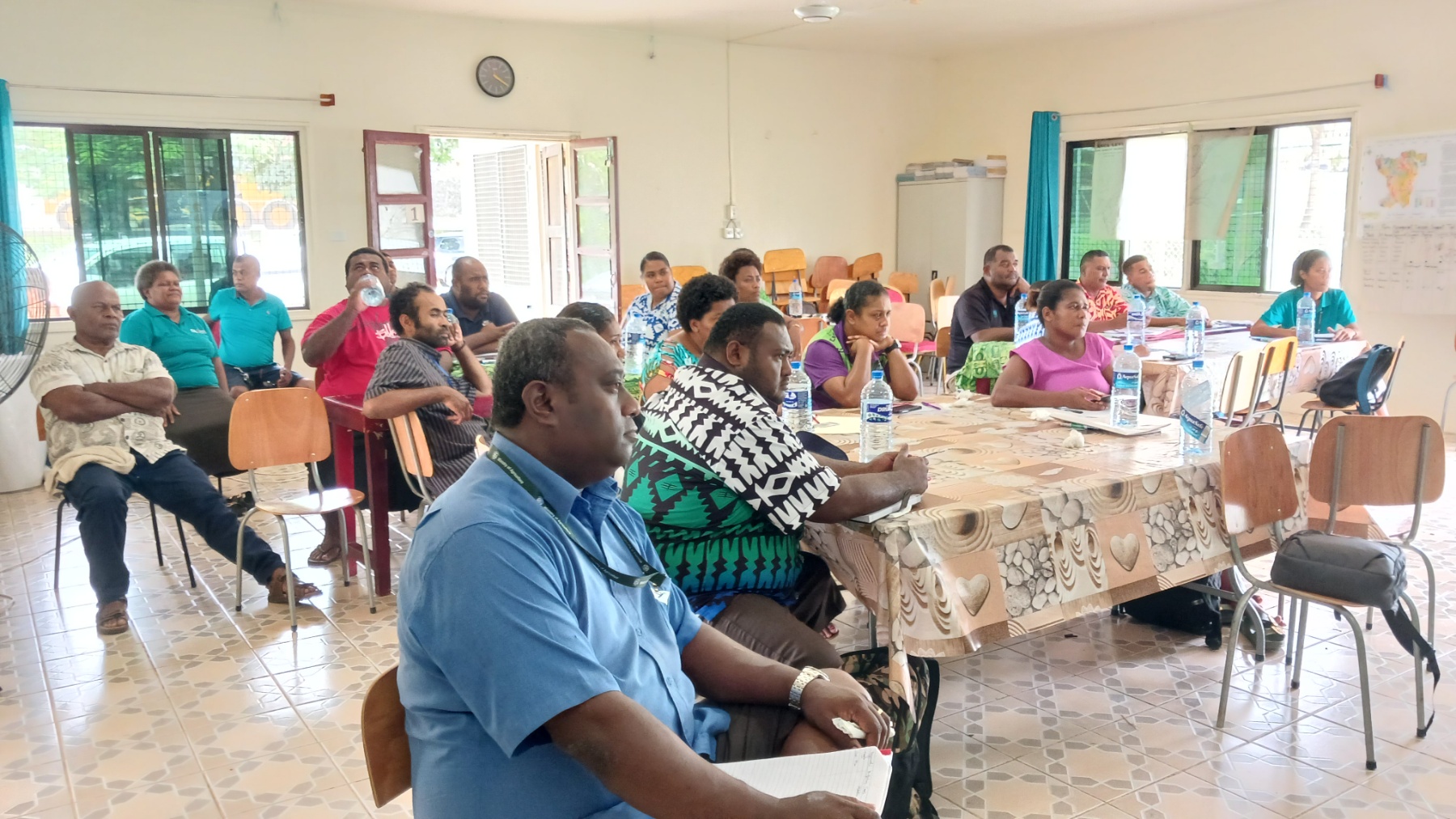MINISTRY CONDUCTS COMPREHENSIVE TRAINING ON PROTECTED CROPPING SYSTEMS AND HIGH-VALUE CROPS
February 25, 2025

In a bid to educate its officers and enhance their agricultural
knowledge, the Ministry of Agriculture and Waterways recently conducted a two
days comprehensive training program focused on the Protected Cropping System
and High-Value Crops at the Sigatoka Research Station.
This initiative aims to equip 14 staff from the Western Division
with essential expertise in managing these systems, including effective pest
and disease control, as well as understanding the benefits associated with
cultivating high-value vegetable crops.
Agriculture Technical Officer (Sigatoka), Viniana Nabitu said
the sessions were designed to bridge the knowledge gap for new officers coming
from diverse agricultural backgrounds.
"This training has been a significant learning experience
for our team, our officers are now better equipped to manage protected cropping
systems and high-value crops, thereby enhancing their ability to serve our
farming community more effectively.
“Officers previously stationed at commodity specialized regions
of yaqona, ginger, rice and dalo have now acquired a solid understanding of
protected structures and high-value vegetable crops gaining valuable insights
into vegetable cultivation and protected structures through this training.”
The comprehensive training covered a wide range of topics,
including the principles and techniques of protected cropping systems, the
identification and management of pests and diseases, and the benefits of
high-value crops.
Participants engaged in hands-on activities, practical
demonstrations, and interactive discussions to deepen their understanding and
application of the concepts learned.
Senior Agriculture Officer (Nadroga/Navosa) Ilisoni Banuve
delivered an inspiring speech during the training, encouraging the officers to
apply their newfound knowledge to drive positive change in their respective
regions.
"This training has been a significant learning experience
for our team, officers are now better equipped to manage protected cropping
systems and high-value crops, thereby enhancing their ability to serve farming
communities more effectively,” he said.
SAO added that the knowledge gained through this program will
enable them to provide better support and guidance to farmers, ultimately
contributing to the growth and sustainability of the agricultural sector.
“This training is a testament to our commitment to continuous
learning and professional growth and I urge each of you to take the knowledge
and skills you've gained here and use them to make a tangible impact on our
agricultural communities. Together, we can promote sustainable practices and
improve the livelihoods of our farmers."
"We are committed to continuous learning and development
and by investing in the education and training of our officers, we are ensuring
that they are well-prepared to address the evolving challenges and
opportunities in agriculture. Our ultimate goal is to foster a resilient and
prosperous agricultural community that can thrive in the face of changing
conditions and demands,” said SAO.
Training participant Agriculture Assistant Nadarivatu Asilika
said, "I was able to learn about protected structures, which is crucial as
some of our farmers are interested in this type of farming. We explored both
its benefits and disadvantages, and the key factors to consider for successful
implementation: right protected structure, crop management, pest and disease
management, and market connections. Additionally, we gained insights into
high-value crops and how they are grown inside protected structures."
Following the successful completion of the staff training,
officers of Nadroga Navosa will be organizing a farmers' training session on
protected structures in the highlands aiming to extend the knowledge gained by
the officers to local farmers, promoting sustainable agricultural practices and
encouraging the adoption of high-value crop production.
ENDS
